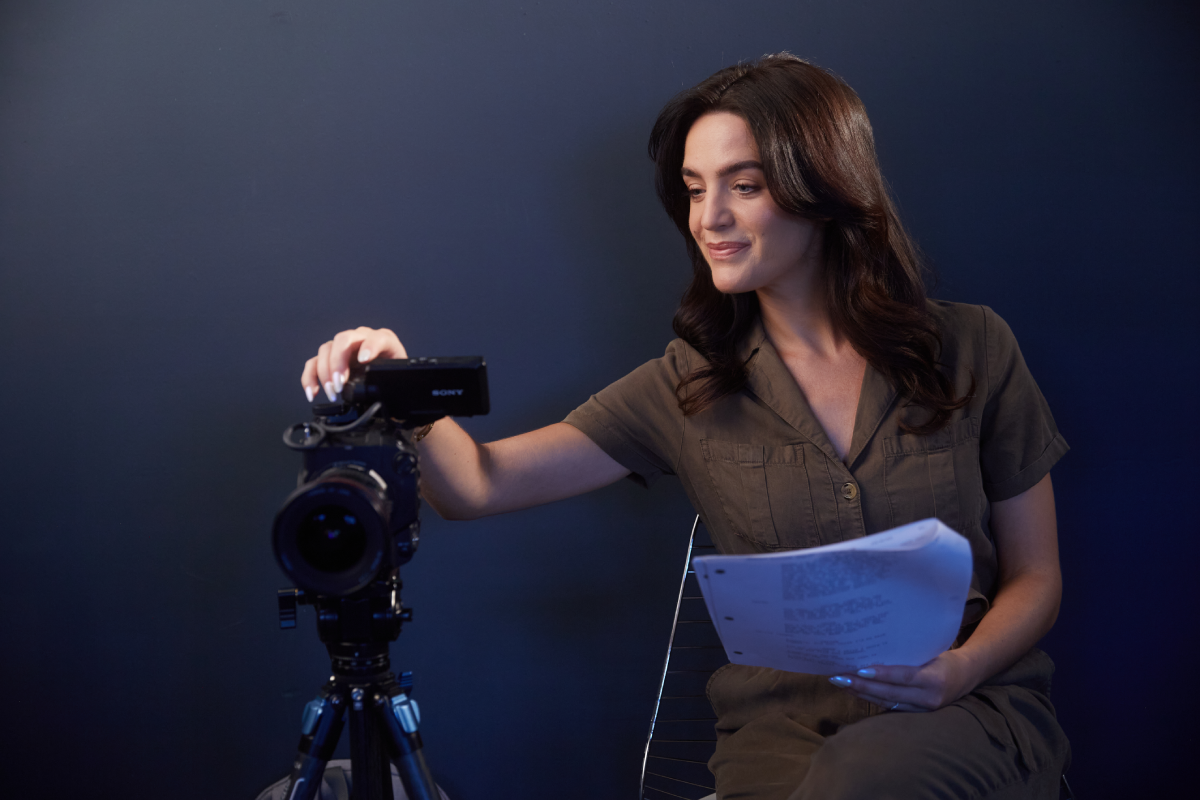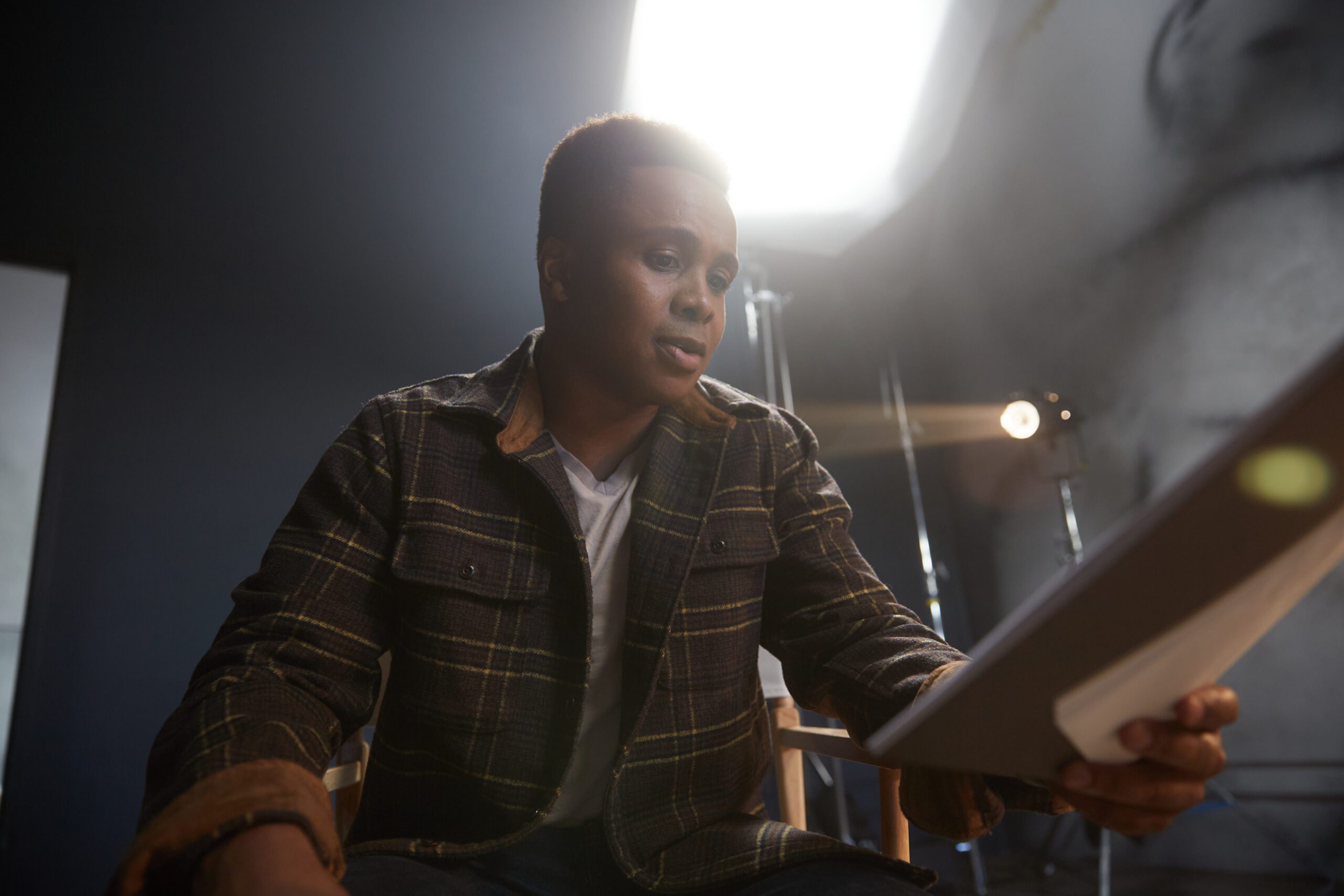In the last few years there has been a huge uptake in conversations surrounding mental health. Often a conversation is the first step, but for most people mental health is a lifelong journey and something we have to work on on a daily basis. Performer, Karen Johal provides her tips and experiences on how to keep your mental health safe whilst undergoing intense subject matters.
As an actor, my job often requires putting myself deep into the mind of the character I am playing – a fully formed person with a past, filled with traumatic experiences that I cannot begin to understand, until I start the work.
In August, I began rehearsals for David Harrower’s Blackbird. The story follows two characters, Ray and Una, who were embroiled in a turbulent, abusive and illegal relationship. Before the work began I had lengthy discussions with my director, Christoper Buckle about how comfortable I was about taking on this role. The challenge was exciting, Una was extremely vulnerable, as a survivor of sexual abuse she had a softness that was layered beneath a furious rage. It was not an easy task to create a character so complex in such a dark and intense environment.
There were a few key factors that enabled me to keep my mental health safe throughout the process:
Building trust with the director
I had thorough conversations with my director, Chris, about what the role would entail and how we would work together to create a safe environment for everyone involved. I was very lucky to work with the theatre company Let Me In, who prioritised everyone’s mental health at every step during production. I cannot stress enough how important it is to establish boundaries and to develop trust with the people who you will work with. Keeping yourself healthy and feeling safe is of utmost importance before you even step into rehearsal.
Being honest with yourself about what you can handle
Taking on this role was a gargantuan task, I was thrilled to be offered the role, but I knew it would not be easy. There were times when I had to stop and ask myself if I was taking on too much or falling into a dark, depressive state because of the character I was playing. By checking in with myself, I was able to continue safely. If you think a role is going to have a serious impact on your mental health, then you can say no. There is no shame in admitting when something is too much or too hard to continue, especially when it comes at the cost of your mental health.
Adapting to the workload and taking a break
I started the rehearsal process as I do with any other project, but I did not anticipate the effect it would have on my head space. Learning lines became a tedious and exhausting task because of how heavy the language was, I did not retain the information as easily as I normally would. When I put the script down for a day and came back to it I realised that I had to be delicate with myself. Breaks were a necessary part of this process. It was then I realised that my character was more than her trauma, and I was able to layer the character and create a three dimensional person who I was excited to play. Not every project is going to be the same, and by using this fresh approach, you can adapt to the experience and keep yourself safe by taking a step back so that when you return, you are better for it.
Telling the story truthfully
It’s a natural reaction to empathise and find similarities between yourself and the character. In our work we often use imaginary circumstances and our own experiences to play the character truthfully. However, if we over indulge in the trauma our character has experienced, we can end up using the story as a kind of therapy for ourselves which is not a sustainable approach to rehearsals. These characters exist in this play and it’s our job to put ourselves aside and tell the story as it was written. When approaching the work in this way, I was able to put aside my own nerves as a performer and put my character first. I became protective of her, as I had learned so much from my research. I wanted to tell her story as authentically as I could because of how heartbreaking and important this story was. It was not about me, but about my character and telling the audience her story.
Letting the character go
There is a post show depression that actors often talk about when a show finishes. We have to say goodbye to the bonds we have formed with our colleagues and perhaps go into unemployment once again. When this show ended I felt satisfied with my work, I had played this character as best as I could. When closing night came around, I said goodbye, I was sad but grateful. It’s important to establish the end of this character by saying goodbye. In letting them go, you are able to return to yourself. Acknowledging that this character ceases to exist beyond the run of the show, you are able to establish a boundary between yourself and the work. Over the years from working on different projects, I have been able to develop rituals in order to do this.
I start by preparing for the end of the run by writing thank you cards or notes to the cast and crew. I have always done this as a way of acknowledging the experience shared between myself and my colleagues, and taking the opportunity to thank them for their work and for the time we have shared. The experience between a cast and crew on any given project is special, and in taking the time to acknowledge and appreciate that you have had this wonderful time together, you are able to establish an end to that period in time. It works to keep you safe by establishing that this intense time has had a beginning, middle and end.
Another great way of establishing boundaries when saying goodbye to the character is to look ahead, as actors we may not have a next project coming up but there is always something. With Blackbird I had another project to look forward to but more importantly I had a wedding to look forward to. By looking forward to this and really allowing myself to be present for the next thing, I was able to let go of my character and return to who I am in the real world. The veil between your character and you should never be too thin, and by looking forward to life beyond the end of this project you can create a sense of clarity around the work you have done and trust that you have done it safely.
It is not an easy task by any means to step into the shoes of a character who has experienced extreme abuse or trauma. I was honored to play a role that was so complex and layered. During this experience, I learned how to keep my mental health safe during the process, but I also learned how important it is to tell the stories of people who have experienced trauma honestly. I was compelled to play my role authentically as it may have been important to someone in the audience to see this story. One of the reasons I became an actor was to tell the stories of people who may not be able to tell their own and use my work to help connect people. I have learned a lot about myself and about the lives of others, and I hope in sharing my experience I can inspire other actors to continue the work they do. This work is important, it is a wonderful profession but keeping ourselves safe and well as we serve the scripts and the characters is of equal importance.
 Karen Johal is a British South Asian Actress, born and raised in Birmingham, England. In 2014 Karen moved to Manhattan, New York to attend The American Academy of Dramatic Arts. Since graduating she has worked extensively in Theatre, Film and Television. Her Theatre credits include Blackbird (Let Me In) Julius Caesar (Shakespeare in the Park), Journey to America (Carnegie Hall), Good Fit (Wow Cafe), As You Like It (The Mechanicals) Camel (The New Natives), She Kills Monsters (AADA), Welcome to Thebes (AADA), Truest (AADA) and Me and the Girls: A Noel Coward Musical (with Scottish actor Alan Cumming). Karen’s most notable film credits include Man on the Phone (Red Bear), Frank’s Plan (Amazon Prime), Everyone Else Has (Youtube) and Cartwright (Henleon). Karen is represented by Shack Artists, UK. She is very excited to be starring in Let Me In’s latest Autumn production of Duncan MacMillians People, Places and Things.
Karen Johal is a British South Asian Actress, born and raised in Birmingham, England. In 2014 Karen moved to Manhattan, New York to attend The American Academy of Dramatic Arts. Since graduating she has worked extensively in Theatre, Film and Television. Her Theatre credits include Blackbird (Let Me In) Julius Caesar (Shakespeare in the Park), Journey to America (Carnegie Hall), Good Fit (Wow Cafe), As You Like It (The Mechanicals) Camel (The New Natives), She Kills Monsters (AADA), Welcome to Thebes (AADA), Truest (AADA) and Me and the Girls: A Noel Coward Musical (with Scottish actor Alan Cumming). Karen’s most notable film credits include Man on the Phone (Red Bear), Frank’s Plan (Amazon Prime), Everyone Else Has (Youtube) and Cartwright (Henleon). Karen is represented by Shack Artists, UK. She is very excited to be starring in Let Me In’s latest Autumn production of Duncan MacMillians People, Places and Things.
Headshot by Yellowbelly Photo
Main Photo by Brooke Cagle on Unsplash



















